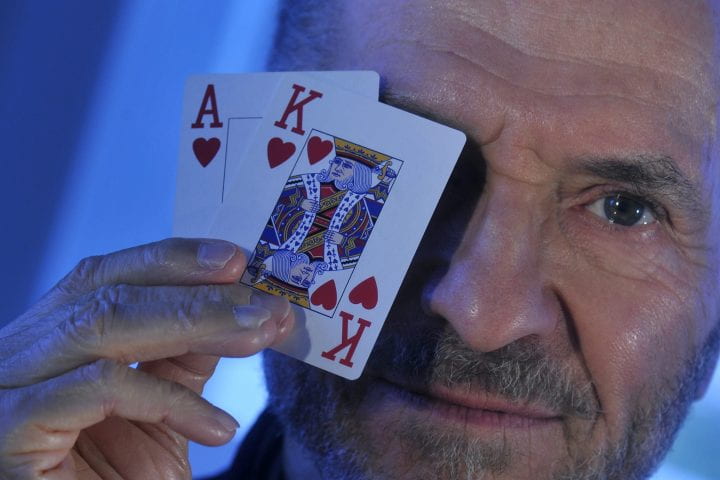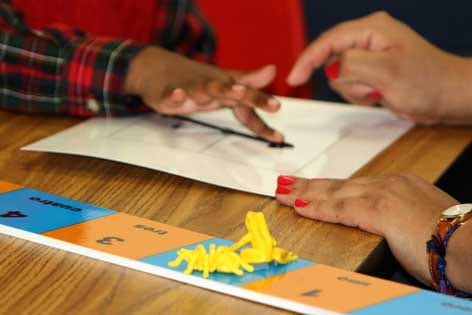Blackjack guru named Extraordinarius
Former math professor Edward Thorp will receive UCI Alumni Association’s top award May 16

Edward Thorp knows his way around a deck of cards. He says that over the years he’s been kicked out of casinos and that casinos have tried to deprive him of his winnings after he beat them at their own game.
In the 1960s, he took the gambling industry by storm and challenged the way people played blackjack by using his own devised methods on mathematical probability. Today he’s known as the father of card counting.
When asked if he considers playing blackjack a gamble, Thorp simply laughs. “It’s no more of a gamble for me than it is for the casino when an ordinary player comes in,” he says.
Only he’s on the other side.
A former professor of mathematics and finance at UC Irvine, Thorp is an expert on how to beat the system, although he insists his card-counting theory was never about the money as much as it was about challenging the conventions of a so-called unbeatable game. When he began his research on blackjack at the Massachusetts Institute of Technology, he had already proven that another gambling game – roulette – was not merely a matter of chance, but one of mathematical probability and physics.
“I had learned a lot of physics in the seven years I was out of high school,” he says, “and I realized you could beat gambling games – some of them anyway – if you thought about it hard enough.”
In 1961, Thorp co-created the first wearable computer with MIT mathematician Claude Shannon. The computer, used to beat roulette, could calculate the velocity of the ball spinning on the roulette wheel and determine which five-number sequence had the highest probability of winning.
Thorp became interested in blackjack after reading a paper that provided a way to play the game and break even. While teaching at MIT, he programmed an IBM 704 computer to calculate his own findings, and in 1962, he published Beat the Dealer, a guide to his card-counting methods.
“We had been taught in math courses that you couldn’t beat any of the casino games,” Thorp says. “But I already knew from roulette that it was wrong.”
Although he is internationally known for his gambling strategies, Thorp’s major contributions to UC Irvine recently earned him the highest honor from the UCI Alumni Association, the Extraordinarius award, which recognizes an alumnus, alumna or UC Irvine friend who has contributed extraordinarily to the university’s advancement.
In addition to being a founding member of the UC Irvine mathematics department and serving on the university’s financial advisory committee, Thorp – along with his late wife, Vivian – also funded a $1 million endowment to the mathematics program.
He retired from UC Irvine in 1982 and went on to apply his mathematical calculations to the stock market and run one of the most successful hedge funds in the United States. He is currently president of Edward O. Thorp & Associates, located in Newport Beach.
Inspired by Benjamin Franklin’s will, his own success in the stock market and hedge fund management, and mathematical probability, Thorp gave specific instructions for the UC Irvine endowment: Spend no more than 2 percent annually.
“It seemed to me that if I had this 2 percent rule in place, over a period of time, my donation would likely grow to a very large amount,” he says. “What would be a fairly modest endowed chair in the beginning would become a very spectacular one in half a century.”
Since the donation in 2003, Thorp says, the endowment has nearly doubled.
As the 2013 Extraordinarius, he is one of 18 members of the UC Irvine community who will be honored May 16 at the 43rd annual Lauds & Laurels ceremony. Proceeds from the event help fund about $90,000 in scholarships and grants bestowed every year by the UCI Alumni Association.
Thorp “decided to retire and put his theories into practice,” says Ken Janda, dean of the School of Physical Sciences. “He was extremely successful, and he contributed to the university both in terms of leadership … and generous contributions. You couldn’t ask for much more from a faculty member.”

